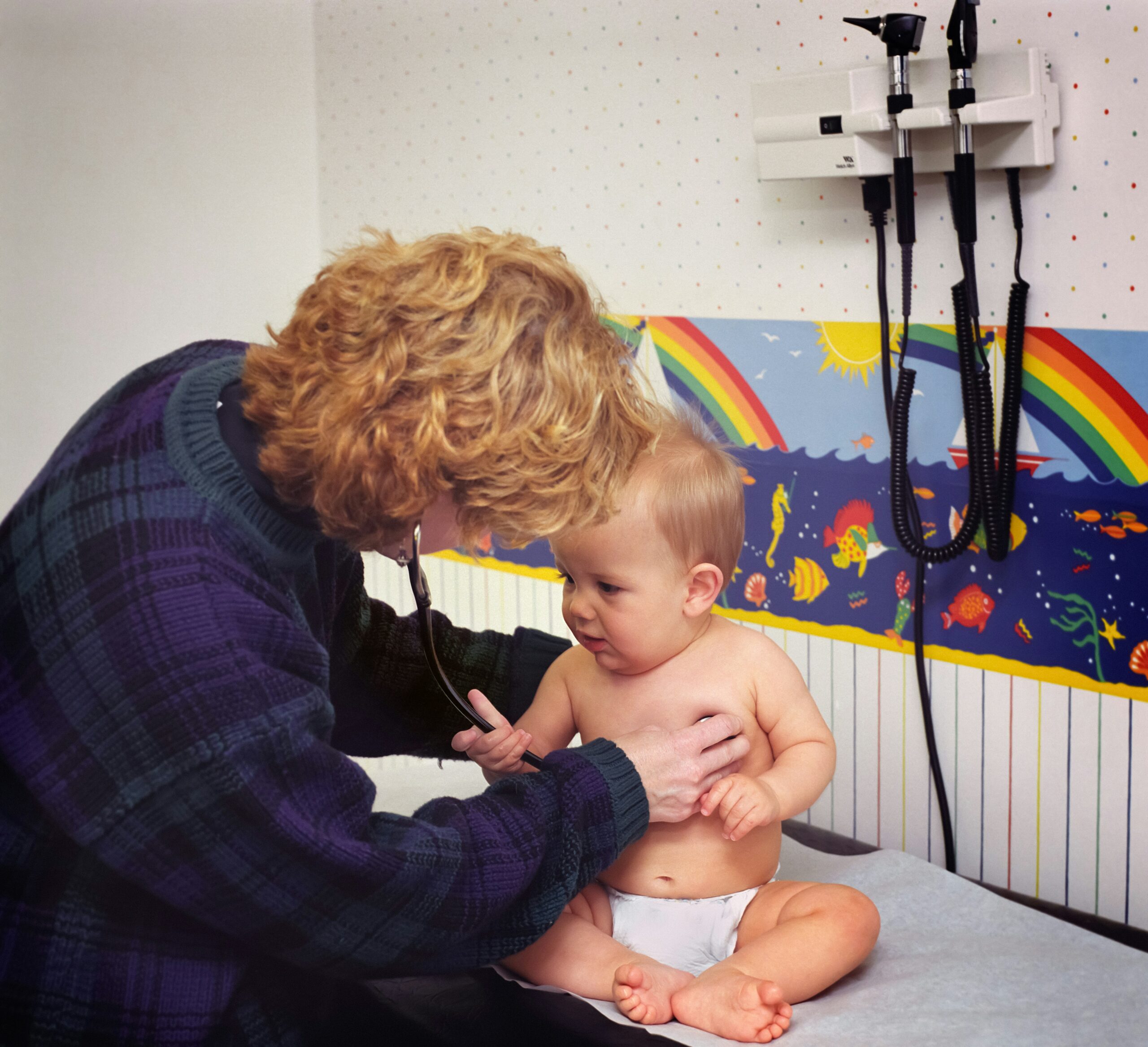Worried about your child’s persistent cough, rapid mood changes, or unexplained fatigue? Wondering when their growth spurt will finally begin or what those unfamiliar vaccine names really mean? Parenthood is a constant cascade of questions, big and small—each one deserving thoughtful answers. A pediatrician steps into this landscape not simply as a clinician, but as a guide through the intricate choreography of childhood development. From daily discomforts and growth milestones to acute illnesses or neurodevelopmental differences, every age and situation brings new challenges. What exactly does a pediatrician do? How do their skills differ from those of a general practitioner? And when should you pick up the phone for an appointment, even if it feels like you’re overreacting? Let’s break it all down—clear facts, nuanced perspectives, and actionable advice for every parent.
Pediatrician: Definition, What They Do, and the Value of Their Care
At the very heart of pediatric medicine stands the pediatrician—a specialist physician, trained specifically to decipher the language of infants, children, and adolescents. Their know-how covers well-baby visits, tracking growth percentiles, performing developmental screenings, and interpreting those baffling symptoms that differ so starkly from adults. Parents often seek reassurance on issues like feeding difficulties, sleep routines, or the subtle evolution of speech.
Every visit with a pediatrician is a blend of science and observation. Growth charts transform raw numbers—weight, height, and head circumference—into stories about wellbeing. The immunization schedule becomes a road map for future protection. Tiny variations in muscle tone or reflexes might signal a need for early intervention. This combination of vigilance and empathy turns data points into meaningful decisions.
Why Consult a Pediatrician? When Expertise Goes Beyond the Obvious
Children aren’t simply smaller versions of adults. Their bodies, immune systems, and behaviors shift rapidly, especially in early years. Pediatricians are experts in both typical and atypical development, providing proactive guidance to families feeling overwhelmed by choices—should you worry about your toddler’s picky eating, or does it fall within normal temperament? Is a sudden limp a harmless bruise, or a sign of something more?
Frequent, planned visits during the first years allow the pediatrician to screen for rare but important conditions—congenital heart anomalies, metabolic diseases, or early markers for conditions such as autism spectrum disorder. They are also the first point of contact for acute concerns: high fever, difficulty breathing, unexplained rashes. If necessary, your pediatrician coordinates care with child neurologists, pediatric cardiologists, or therapists, ensuring your child benefits from a full network of expertise.
Preventive care forms a backbone of pediatric medicine—routine vaccination, oral health promotion, adolescent mental health screening, nutrition counseling, and accident prevention. Questions as varied as “Is my preteen ready for their first phone?” to “Which sunscreen is safest for babies?” are all fair game in a pediatrician’s office.
Pediatrician vs. General Practitioner: What Sets Them Apart?
Why choose a pediatrician over a family doctor? The distinction is more than academic—pediatricians spend years immersed in conditions exclusive to childhood: febrile seizures, juvenile diabetes, developmental delays, and rare genetics disorders such as cystic fibrosis. Their training hones an eye for patterns easily dismissed in a busier, all-ages clinic. General practitioners provide excellent frontline care for common ailments but frequently rely on pediatricians for developmental assessment, behavioral consultations, or interpretation of growth trends outside the ordinary.
The Human Side: Empathy and Communication
What transforms a medical visit into a partnership? Communication—adapted, respectful, and always transparent. A pediatrician must draw out details from a nervous teen, comfort an anxious toddler, and equip parents to handle home care. Medical explanations are straightforward, shorn of jargon yet rich with meaning. Ever debated breastfeeding versus formula? Unsure about allergy signs or the pros and cons of co-sleeping? A pediatrician’s approach blends scientific guidelines on feeding, safety, and preventive strategies with a respect for personal choices. They’ll suggest, inform, and encourage, never imposing one-size-fits-all answers.
Prevention, Ongoing Support, and Parental Guidance
Routine checkups are so much more than a quick listen to the heart and a scratch of the pen. Pediatricians take stock of every aspect: feeding transitions, cognitive milestones, injury prevention at home, evolving bedtime routines, vaccine schedules. They share evidence-based tips, such as vitamin D supplementation for infants, detailed handwashing techniques, or strategies for screen time negotiation. Hygiene, feeding, sleep, behavior—all are discussed openly, without judgment.
For parents struggling with uncertainty—Is the baby sleeping too much? Is it normal to resist new foods?—the pediatrician provides reassurance and, where needed, referrals to speech therapists, dietitians, or psychologists. The notion of comprehensive follow-up lies at the core of pediatric care.
How Pediatricians Train (and Evolve)
The path to becoming a pediatrician is long and rigorous. After medical school comes residency, with years spent in hospital wards, emergency units, and outpatient clinics devoted exclusively to infants, children, and teenagers. Pediatricians learn to decode symptoms that may be nonverbal, recognize the early stages of rare conditions, and manage both acute and chronic illnesses specific to childhood.
Many pursue further sub-specializations: neonatology for premature babies, pediatric endocrinology for hormone disorders, or pediatric psychiatry for complex emotional and behavioral concerns. Research, teaching, and participation in expert committees allow pediatricians to contribute to evolving standards. For families, this means detailed, current advice tailored to even the rarest scenario.
Where Pediatricians Practice: Beyond the Clinic Walls
From private practices to bustling hospitals, neonatal units, and public health centers—pediatricians serve families across all settings. In maternity wards, they evaluate newborns’ adaptation to life outside the womb. Emergency departments rely on pediatric expertise for acute conditions, while specialty clinics handle chronic diseases or complex conditions. If proximity or mobility is a concern, telemedicine is transforming access, allowing questions to be answered remotely, medication adjustments to be made on the fly, and persistent symptoms to be monitored efficiently.
Community resources, such as free child health clinics, offer preventative screenings, vaccinations, and parenting support, especially in regions where private practitioners are scarce. A child’s health record—shared among providers—becomes the gold standard for coordinated, safe care.
Embracing Modern Tools: Telemedicine and Digital Health
The digital revolution hasn’t left pediatric care behind. Busy schedules, distance, or emergencies have made virtual consultations more common—and, for many questions, just as effective as in-person visits. Medication adjustments, wound checks, allergy follow-ups—many concerns can be addressed by video or phone. Still, if a baby has persistent fever or struggles to breathe, a hands-on exam remains irreplaceable. Digital growth charts, remote monitoring, and parent education apps place expert knowledge within reach at all times.
Follow-Up, Monitoring, and the Child’s Health Trajectory
Scheduled well-child visits are carefully calibrated to coincide with key developmental stages: monthly checks in early infancy, spreading to annual reviews after age two. At each visit, the pediatrician evaluates not just physical growth but speech and language, fine and gross motor skills, social interaction, and emotional regulation. Screening questions dig deeper—picking up on subtle clues that might signal anything from hearing loss to behavioral differences.
Routine care, however, also includes guidance for daily life: how to introduce solids, manage picky eating, transition from crib to bed, or prepare for preschool. In situations where chronic illness is present—such as asthma, epilepsy, diabetes—pediatricians coordinate with other specialists to ensure therapies don’t conflict and families aren’t left patching together advice from multiple fronts.
Psychological Health: The Unseen Landscape
Today’s pediatrician recognizes the centrality of mental wellbeing in child health. Family stress, anxiety, delayed speech, bullying at school—these issues often emerge long before formal diagnosis. Pediatricians screen for emotional distress, identify indicators of autism or ADHD, and refer promptly to child psychologists or other counselors when needed. Early support for families can transform not only school success, but lifelong relationships and self-esteem.
When (and How) to Consult a Pediatrician
Questions often arise—Should you wait and see? Is this cough normal? Is unexplained vomiting a sign of something more? Parents are encouraged to consult a pediatrician for symptoms such as high fever, persistent lethargy, sudden loss of weight, breathing difficulties, or any developmental regression. Early contact is not only appropriate but protective. For minor but persistent concerns, even a quick conversation can yield peace of mind.
Appointments are typically scheduled following an official rhythm: the first within days of birth, then monthly, quarterly, and annually unless specific needs require closer supervision. Documentation in the child’s health record ensures milestones and interventions aren’t missed, streamlining future care.
Choosing Your Child’s Pediatrician: What Matters Most
Selecting a pediatrician involves multiple factors—availability, bedside manner, experience, openness to conversation, and how well your family’s values align with their advice style. Some families prioritize telemedicine options or flexible scheduling, while others prefer the close rapport built through regular in-person visits. What matters most is trust, consistency, and a safe space for your questions—no matter how complex or routine.
Fees, Insurance, and Universal Access
The financial aspects of pediatric care vary. In many countries, preventive visits and vaccinations are covered fully or in part by insurance. Teleconsultations increasingly qualify for reimbursement when overseen by licensed providers. Public health centers bridge the gap by ensuring that even families with limited means have access to expert care—no barriers, no stigma, only support for healthy growth.
Building a Lasting Relationship: Communication and Collaboration
A child’s health journey is rarely linear. Pediatricians value your insights, listen attentively to every concern, and take the time to unpack the rationale behind any recommendation. This collaborative spirit—the seamless handoff between pediatrician, therapists, surgeons, and general practitioners—means your child’s evolving needs are met with expertise and unity. Thorough documentation (the child health record) acts as the thread weaving each professional encounter into a coherent whole.
Pediatric Subspecialists, Ongoing Research, and Current Challenges
For children with rare conditions, specialized expertise may be necessary—pediatric nephrologists for kidney disorders, pediatric rheumatologists for chronic pain, or pediatric oncologists for cancer therapies. The reality of unequal access, growing prevalence of obesity, neurodevelopmental differences, and rising parental expectations has pushed pediatricians toward ever more flexible and innovative models. New tools, continuing research, collaborative multidisciplinary teams—all power a system constantly evolving to do better by every child.
Mental health, once considered secondary, is now a major focus—autism, anxiety, and learning differences receive prompt attention and coordination with schools and family supports.
Key Takeaways
- The pediatrician is a steadfast partner for every stage of your child’s development, combining technical skill with empathy and clear communication.
- Pediatricians provide individualized care, early intervention for illnesses and developmental concerns, evidence-based advice, and coordinate with a network of trusted specialists.
- Their training is continuous and exhaustive, ensuring up-to-date care for both common and rare health conditions across all childhood stages.
- Pediatric care is accessible through private practices, hospitals, and increasingly via telemedicine—adapting to family needs rather than the other way around.
- All aspects of child health are covered: immunizations, growth tracking, nutrition, sleep habits, mental wellbeing, accident prevention, and more, always grounded in the latest scientific research.
- Clear documentation and seamless collaboration among health professionals support a safe and effective journey from newborn to young adulthood.
- For tailored advice, practical guidance, and free health questionnaires for your child, try the Heloa app, designed to empower parents at every step.
Professional help, clear answers, and compassionate guidance do exist—every family deserves a pediatrician who listens, understands, and partners with them for the healthiest future possible.
Questions Parents Ask
What conditions do pediatricians commonly treat?
Pediatricians look after a wide variety of childhood health concerns—both mild and more complex. They regularly handle common colds, ear infections, allergies, skin rashes, mild injuries, and digestive discomforts such as constipation or reflux. Beyond the everyday, they also help families manage asthma, eczema, growth concerns, and behavioral changes. If new symptoms or repeated illnesses appear, your pediatrician is there to support you, explain what’s happening, and guide you with kindness toward solutions that fit your child’s needs.
What are the differences between a pediatrician and a family doctor?
The difference mainly lies in their training focus. Pediatricians receive advanced education in understanding the unique needs of infants, children, and teenagers—physically, emotionally, and developmentally. They are highly familiar with conditions that are specific to childhood, including rare genetic disorders and neurodevelopmental differences. Family doctors provide excellent general care for all ages, but pediatricians are especially well-equipped to address every stage of a child’s growth, offering in-depth advice and reassurance tailored to young patients and their families.
How do I know when to choose a pediatrician for my baby?
Deciding to consult a pediatrician from your baby’s earliest days often brings peace of mind. Pediatricians can support you from the newborn stage through adolescence, providing continuity as your child grows. Many families appreciate having a dedicated pediatric expert to ask questions about feeding, sleep routines, or developmental milestones. If you feel the need for more specific advice or have any worry—no matter how small—don’t hesitate to book a consultation. Each family’s situation is unique, and there is no wrong time to choose supportive, specialized care for your child.

Further reading:








